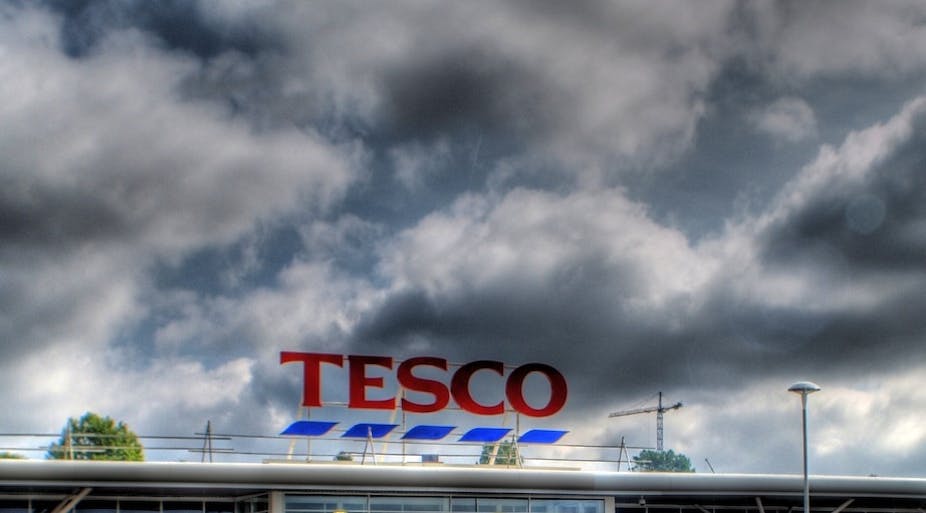Tesco boss Philip Clarke has paid the price for another profit warning from the struggling – though still dominant – retailer. But while his track record is picked apart by commentators, scrutiny should also be directed at a boardroom which laid the foundations for failure.
Clarke will stand down in the autumn after 40 years at the company and three years after taking over as CEO. He will be replaced by Dave Lewis, trumpeted as a turnaround expert, from consumer goods giant Unilever.
While acknowledging that Clarke was dealt a poor hand by his predecessor Sir Terry Leahy, commentators have largely pinned blame on the beleaguered CEO. They point to, among other things, his delay in pulling the plug on the loss-making “Fresh & Easy” venture in the US and a failure to recognize early enough the shifts in UK consumer behavior.
To be fair to Clarke, the seeds for the retailer’s travails were sown by the board years before his ascension to the top of the Tesco tree.
Break the US
First, the board countenanced Leahy’s grand – and in my view, misguided – plan to conquer the United States. When Tesco unveiled its US strategy in 2007, I was employed at a large investment firm (which held shares in Tesco) and remember having doubts that the insights the retailer gleaned from the hugely successful operations in the UK were entirely transferable. In effect, the company was trying to use its experience in Britain, a country where people are squeezed into a relatively compact landmass, to guide an assault on widely dispersed populations in the western US states where Fresh & Easy stores launched.
And then we come to an arguably more significant misjudgment by the board which highlights some of the difficulties in motivating corporate leaders. The board decided to devise an additional share scheme – on top of an already lucrative package – for Leahy to grow the international (and particularly the US) business. At the time, I questioned the board about the wisdom of granting the chief executive – who is responsible for the entire company – separate financial incentives for expanding a subset of the firm.

There is a fundamental point here. It is my belief that a chief executive does not need, or deserve, additional financial incentives to explore and pursue growth opportunities. That should be a core part of their job. I was also worried that the design of the incentive arrangements could lead to neglect of the domestic business. Sure enough, a key criticism of Tesco today is that its core UK business has received insufficient attention in recent years while those international ambitions – and the subsequent retreat – were indulged.
Star struck
Third, the board’s generosity to Leahy on remuneration suggests that it may have been too enamoured of the then-feted “superstar” CEO. He had helped turn Tesco into a retail powerhouse and it is easy to see how his strategy in the US might have been afforded too much leeway by the board before they finally decided to reverse course in 2013. It also makes one wonder about the succession planning process that led to the appointment of Clarke as CEO in 2011, particularly after similar issues have made headlines at Procter & Gamble and Manchester United.
The change of leadership will not come cheaply. According to reports, Clarke is expected to walk away with £9.6m, including a £1.1m salary and share awards, and will continue to be paid his £1.1m salary for one year after his departure. Lewis, meanwhile, will join on a basic salary of £1.25m, with bonuses on top of that in lieu of payments from Unilever.
The considerable and mounting costs to Tesco mean the broader background contributing to Clarke’s departure should be instructive. While a chief executive certainly must be held to account for a company’s failures, the behind-the-scenes role of the board also needs to be acknowledged so that lessons can be learned by all relevant parties.

